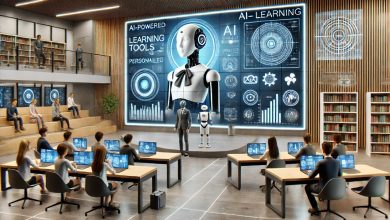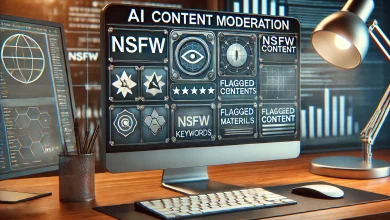Janitor AI: Revolutionizing Facility Management and Cleaning Operations
Janitor AI: Revolutionizing Facility Management and Cleaning Operations
Introduction
In the ever-evolving world of technology, Artificial Intelligence (AI) continues to transform industries, making operations more efficient, streamlined, and effective. One such innovation is the development of Janitor AI, a cutting-edge tool designed to automate and enhance the process of facility management, cleaning, and maintenance tasks. This AI-powered system is changing the way businesses approach cleanliness and operational efficiency, especially in large-scale environments such as offices, hospitals, schools, and hotels.
This article will explore Janitor AI, its functionalities, and how it is revolutionizing the cleaning industry. We’ll also dive into the benefits of implementing AI-driven janitorial services, how it integrates with existing systems, and the potential challenges and future of this technology.
What is Janitor AI?
Janitor AI refers to the application of artificial intelligence to janitorial services and facility management. By leveraging AI algorithms, machine learning, and data analysis, Janitor AI systems automate cleaning schedules, predict maintenance needs, optimize resource allocation, and improve overall operational efficiency. These systems are equipped with advanced sensors and software that can monitor the cleanliness of spaces, detect issues, and even perform cleaning tasks autonomously.
Janitor AI systems can be integrated with Internet of Things (IoT) devices, creating smart buildings where cleaning tasks and maintenance are automated based on real-time data. This minimizes human intervention, reduces costs, and ensures that spaces are maintained to a high standard consistently.
How Janitor AI Works
Janitor AI combines several technologies to offer intelligent, efficient, and adaptive cleaning solutions. Here are the core functionalities of Janitor AI systems:
- Automated Cleaning Schedules:
- AI algorithms can create cleaning schedules that are based on usage patterns, occupancy rates, and specific cleaning requirements. For example, if an office space is occupied by a large number of people, the AI system can schedule more frequent cleaning to maintain hygiene standards.
- Predictive Maintenance:
- By using machine learning and IoT sensors, Janitor AI can monitor the performance of cleaning equipment such as vacuum cleaners, floor scrubbers, and air purifiers. The AI can predict when these machines need maintenance or repairs, minimizing downtime and reducing operational costs.
- Real-Time Monitoring and Sensors:
- Advanced sensors can detect dirty or high-traffic areas that need immediate cleaning attention. AI systems can continuously monitor cleanliness levels (e.g., floor cleanliness, air quality) and make real-time decisions about which areas need the most attention.
- Autonomous Cleaning Machines:
- Some Janitor AI solutions are integrated with robotic cleaners that can autonomously clean floors, windows, or other surfaces. These robots can be programmed to clean during off-hours to avoid disrupting daily activities, reducing the need for human labor in cleaning tasks.
- Data Analytics and Reporting:
- Janitor AI systems generate reports and analytics on cleaning performance, staff productivity, and space usage. Facility managers can use these insights to improve overall operations and ensure spaces are being cleaned efficiently.
Benefits of Janitor AI
The integration of AI technology into janitorial services offers a wide range of benefits for businesses, facility managers, and employees. Here are some of the key advantages:
1. Increased Efficiency and Productivity
By automating routine cleaning tasks, Janitor AI frees up human workers to focus on more complex and high-priority tasks. The AI-powered system can operate around the clock, ensuring that spaces are always clean without the need for manual intervention, which leads to enhanced overall productivity.
2. Cost Reduction
While implementing Janitor AI requires an initial investment in equipment and software, it ultimately saves businesses money. The system minimizes the need for a large cleaning staff, reduces the frequency of unnecessary cleaning, and ensures that cleaning machines are maintained before they break down. Additionally, automation leads to less waste of cleaning supplies.
3. Improved Cleaning Quality
Janitor AI systems maintain a higher and more consistent cleaning standard. With real-time monitoring and data-driven insights, the AI can ensure that areas are cleaned properly, addressing issues as they arise. Predictive maintenance also ensures that equipment operates efficiently, delivering a higher quality of service.
4. Data-Driven Insights
Janitor AI can generate valuable data and analytics on cleaning efficiency, resource usage, and overall building performance. This data can be used to optimize cleaning schedules, improve facility management decisions, and even reduce energy consumption.
5. Sustainability and Environmental Impact
AI can be programmed to use eco-friendly cleaning products, minimize water and energy usage, and reduce waste. The predictive maintenance aspect also ensures that equipment is not overused or underperforming, which further promotes sustainability.
Applications of Janitor AI
Janitor AI can be implemented across a variety of industries and spaces, including:
1. Commercial Office Spaces
- Offices and business buildings are constantly occupied by people, meaning they require frequent cleaning to maintain a professional and healthy environment. Janitor AI systems can monitor areas like restrooms, lobbies, and meeting rooms to ensure that cleaning schedules match the building’s usage patterns.
2. Healthcare Facilities
- In hospitals and healthcare environments, cleanliness is essential to preventing the spread of infections. Janitor AI can optimize the cleaning of high-traffic areas, operating rooms, patient wards, and bathrooms, helping to maintain stringent hygiene standards and reducing the risk of contamination.
3. Educational Institutions
- Schools, universities, and other educational facilities benefit from Janitor AI by keeping classrooms, hallways, and cafeterias clean throughout the day. With students in and out of classrooms constantly, AI-driven systems can optimize cleaning during non-peak hours to minimize disruption.
4. Retail and Hospitality
- In retail spaces and hotels, maintaining cleanliness and customer satisfaction is key. Janitor AI systems can help ensure that high-traffic areas like restrooms, entrances, and aisles are consistently clean, improving the customer experience and making the spaces more inviting.
Challenges and Future of Janitor AI
While Janitor AI offers a promising future for facility management, there are some challenges to its widespread adoption:
1. Initial Investment:
- The cost of implementing AI systems and robotic cleaning machines can be high for small to medium-sized businesses. However, the long-term benefits often outweigh the initial costs.
2. Technology Limitations:
- Current AI systems might have limitations in terms of adaptability to complex or irregular cleaning tasks. While autonomous robots can clean floors efficiently, tasks like window washing or upholstery cleaning may still require human intervention.
3. Data Privacy and Security:
- Since Janitor AI systems rely on data from sensors and real-time monitoring, concerns around data privacy and cybersecurity are paramount. Ensuring secure networks and safe data handling will be crucial as these systems evolve.
4. Human Workforce Transition:
- As automation increases, there could be concerns about job displacement in the janitorial sector. While AI systems improve efficiency, businesses will need to focus on retraining workers for higher-value tasks that AI cannot perform.
Conclusion
Janitor AI is revolutionizing the way businesses approach cleaning and facility management. By automating tasks, providing real-time data, and ensuring higher quality standards, AI-driven cleaning systems offer many advantages for organizations. As technology continues to improve, we can expect Janitor AI to play an even larger role in shaping the future of facility management, helping businesses cut costs, improve efficiency, and create cleaner, healthier environments.
Call to Action
If you’re interested in improving your facility’s cleaning operations, consider exploring Janitor AI solutions. Start by researching the latest AI-driven cleaning technologies, and invest in systems that can make your workplace more efficient, cost-effective, and sustainable.







